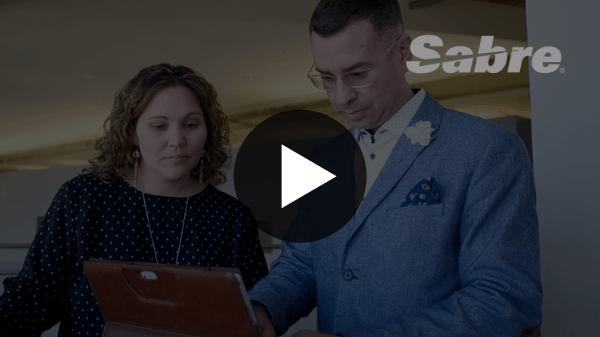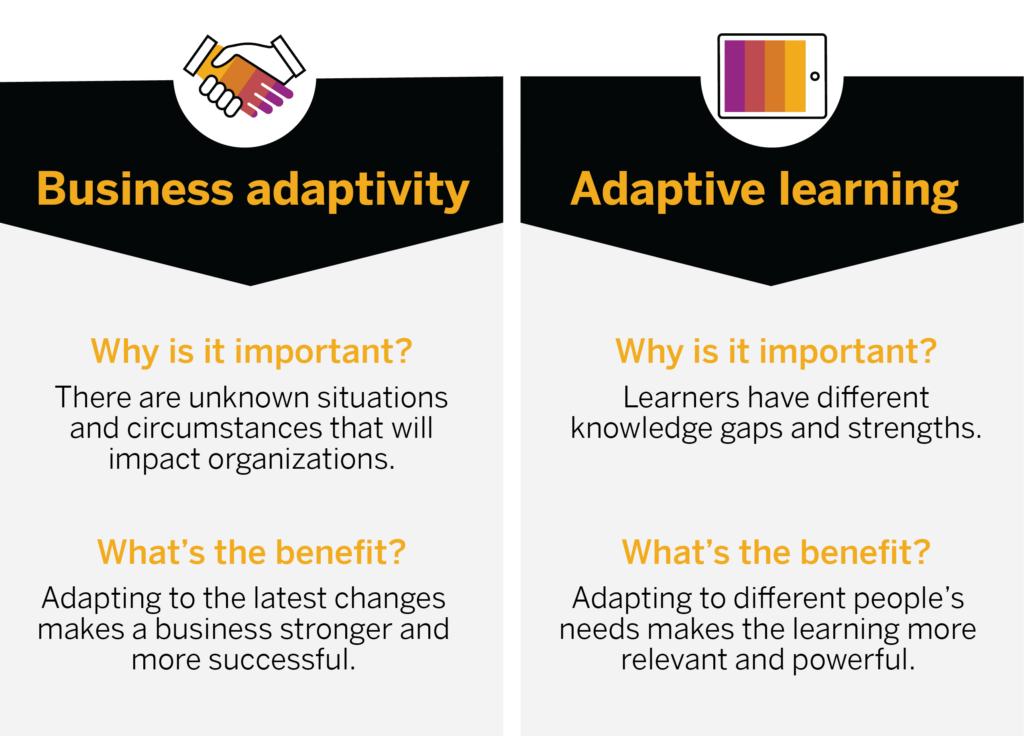Use Adaptivity to Deliver More Relevant, Effective Training
Here at Litmos, we hear new and inspiring stories most days about customers overcoming the many challenges of operating during a pandemic. Even organizations with the best business continuity plans are finding that an ability to adapt is essential to maintaining competitive advantage in the “new normal.” But long before mask wearing and social distancing became a thing, eLearning embraced adaptivity to deliver engaging and relevant training that is tailored to individual users.
To avoid confusion about the differences between business adaptivity and adaptive learning, take a look at the table below. Once we clear that up, we can take a closer look at adaptive learning and how this user-centered technology can boost training impact.
Adaptive learning is personalized
Adaptive learning uses technology to tailor a learning experience to a user’s preferences and learning needs. An adaptive learning experience captures information about a user’s actions and performance. Using this information, the course or curriculum then adapts to the individual learner.
Let’s say you want to take a course on baking sourdough. A few quick questions to check your bread-baking experience and equipment could be used to tailor a course for the sourdough novice or veteran baker. Once underway, the sourdough course could use machine learning to recognize where you get stuck. More in-depth material could be offered to help you back on track.
If like me you have a sourdough starter living its own life in the back of your fridge, an adaptive sourdough baking course could mean the difference between a festering fermentation and fresh-baked glory.
Human-centered learning design boosts engagement and performance
Pushing out the same content in a predictable pattern to all employees is no longer good business.
By giving learners what they need and in ways they like, adaptive learning creates more effective and efficient learning experiences. Rather than serving up one-size-fits-most online training, adaptive learning takes a human-centered approach. It allows us to create eLearning that responds to individual learners, meets them where they are, and supplies what they need.
Better learning at work is vital in contemporary business. Effective up-skilling and re-skilling will be necessary for individuals and organizations to stay ahead. But the benefits are greater than a high-performing workforce. As the best employers take a person-first approach to HR and look to delivering motivating and meaningful employee experiences, personalized learning becomes crucial.
Adaptive learning use case: Compliance training
Today’s HR and L&D Managers are under increasing pressure to efficiently deliver regular compliance training that mitigates legal, business, and reputational risk and increases training completion rates.
Here at Litmos, we are using adaptive learning technology to help our customers meet this business need. Working with our legal subject matter experts, we have taken the most popular compliance courses for Australia, New Zealand, and now the UK, and have developed adaptive refresher training courses.
These courses – in topics such as Workplace Bullying, Health and Safety, and Equality and Diversity – are designed with built-in, pre-assessment, and adaptive learning functionality. The course identifies workforce knowledge gaps and delivers tailored content to each learner – reducing seat times and lifting compliance training completion rates.
Each adaptive course has a full-length foundation training equivalent, allowing you to swap between foundation training and refresher training to keep employees engaged and to protect your business.
Claim the “adaptive advantage” with learning
Being an adaptive organization means being a learning organization. As you look at how training is best woven into strategy within your organization, consider the ways that adaptive learning technology can help deliver positive outcomes for your people and your business performance.






